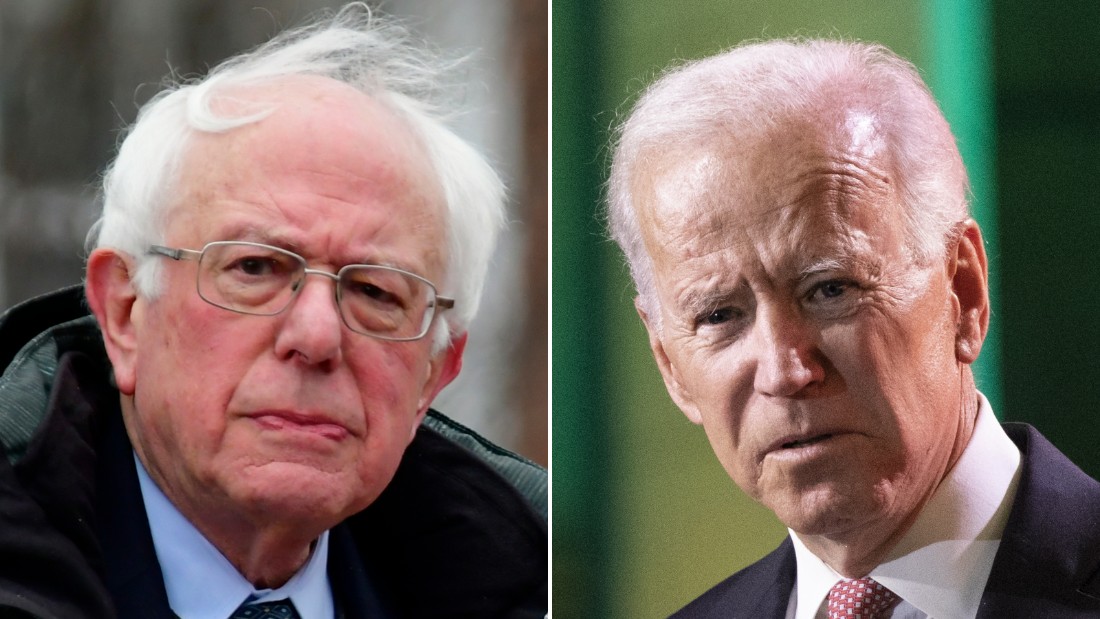[ad_1]
Several candidates land below the 1% marker set out as a baseline for inclusion in the Democratic National Committee’s upcoming debates — including Sen. Kirsten Gillibrand of New York and former Colorado Gov. John Hickenlooper.
A handful of candidates have seen improvements in their favorability numbers since December, and nearly all of those had announced their candidacies in between the two polls. Harris leads the pack, with her favorability number climbing 9 points to 58% while her negatives held steady. Former Secretary of Housing and Urban Development Julian Castro’s numbers have climbed 6 points (33% favorable now), as have Washington state Gov. Jay Inslee’s (17% favorable in the new poll). Klobuchar’s positive numbers have gone up 5 points to 43%. Klobuchar has seen a corresponding rise in negative views, however, with 15% now saying they have unfavorable opinions, up from 8% in December.
But that announcement bump hasn’t happened for all: Booker, Gillibrand, Hickenlooper, Sanders and Warren all announced runs or exploratory committees in the time between the two polls and saw no meaningful positive changes in their numbers. In Gillibrand’s case, her negative numbers rose between the two polls by 6 points to 16%.
Likely caucusgoers continued to be divided along two key lines in assessing their choices for president: age and ideology. Among those under age 45, Sanders has a 9-point edge over Biden, 32% to 23%, with Warren at 10% and Harris at 9%. Among older likely caucusgoers, Biden stands 15 points ahead of Sanders, 32% to 17%, with no other candidate in double digits. The ideological divide is similar. Among liberals, 30% back Sanders, 21% Biden, 11% Warren and 7% each Harris and O’Rourke. Moderate or conservative likely caucusgoers, however, give Biden a wide edge: 36% to Sanders’ 18%, with the rest below 10%.
But Biden’s lower standing among liberals doesn’t necessarily mean he is seen as ideologically out of step. Overall, 70% of likely caucusgoers say his political views are about right, well ahead of the next closest contender on this score (54% consider Warren’s views about right). Sanders, however, faces concerns about his views that even extend to self-described liberals among Iowa’s likely caucusgoers. Overall, 44% say they consider Sanders’ views too liberal; that includes 41% of self-described liberals.
Most likely caucusgoers say the independent senator from Vermont has pushed the party in a good direction and that he should be in the race again (54% feel that way), but a sizable 43% say his time has passed and he shouldn’t be running.
Fewer feel Biden’s time has passed: 31% say so, while 64% say his substantial experience means he ought to get in the race.
The poll assessed what likely caucusgoers are looking for from their candidates in policy support, what they talk about on the trail and a handful of traits.
The survey finds likely Democratic caucusgoers are overwhelmingly looking for a candidate who will aim to unite the country rather than focusing on Democrats’ anger to defeat the President (83% to 13%). And most are looking for candidates willing to go all in on taxing the wealthy (67% want a candidate who fully backs new taxes targeting people with over $50 million in assets) and on the Green New Deal (65% favor a candidate who supports that package in full). Fewer are ready for full-bore support for “Medicare-for-all,” shifting to a government-run health system (49%) or legalizing recreational marijuana nationwide (44%). And just 36% feel the same on free tuition for public four-year colleges.
This group of likely caucusgoers is almost universally looking for a candidate who will spend a lot of time discussing health care (81%) and climate change (80%). Two-thirds want lots of airtime for income inequality (67%), and majorities say they would like the candidates to spend a lot of time on immigration (57%), race relations (57%), job creation (55%), student debt (55%), criminal justice reform (54%) and guns (52%). Far fewer are hoping for much discussion of international trade (37%) or impeachment (22%).
Seven in 10 say they would be dissatisfied if the party’s eventual nominee turned out to be one who held fundraisers with wealthy individuals and corporate lobbyists (71%), though most would be satisfied with a candidate who preferred a more socialist version of the country (56%). There’s a lot of ambivalence, however, about whether a straight, white man would be a satisfactory nominee: 38% say yes, 21% no and 40% are unsure.
Assessing the Iowa Democratic Party’s plan for virtual caucuses, most likely attendees don’t really know enough to say how they feel about it, but those expressing opinions are mostly behind the plan: 23% approve, 4% disapprove and 73% are unsure.
[ad_2]
Source link


